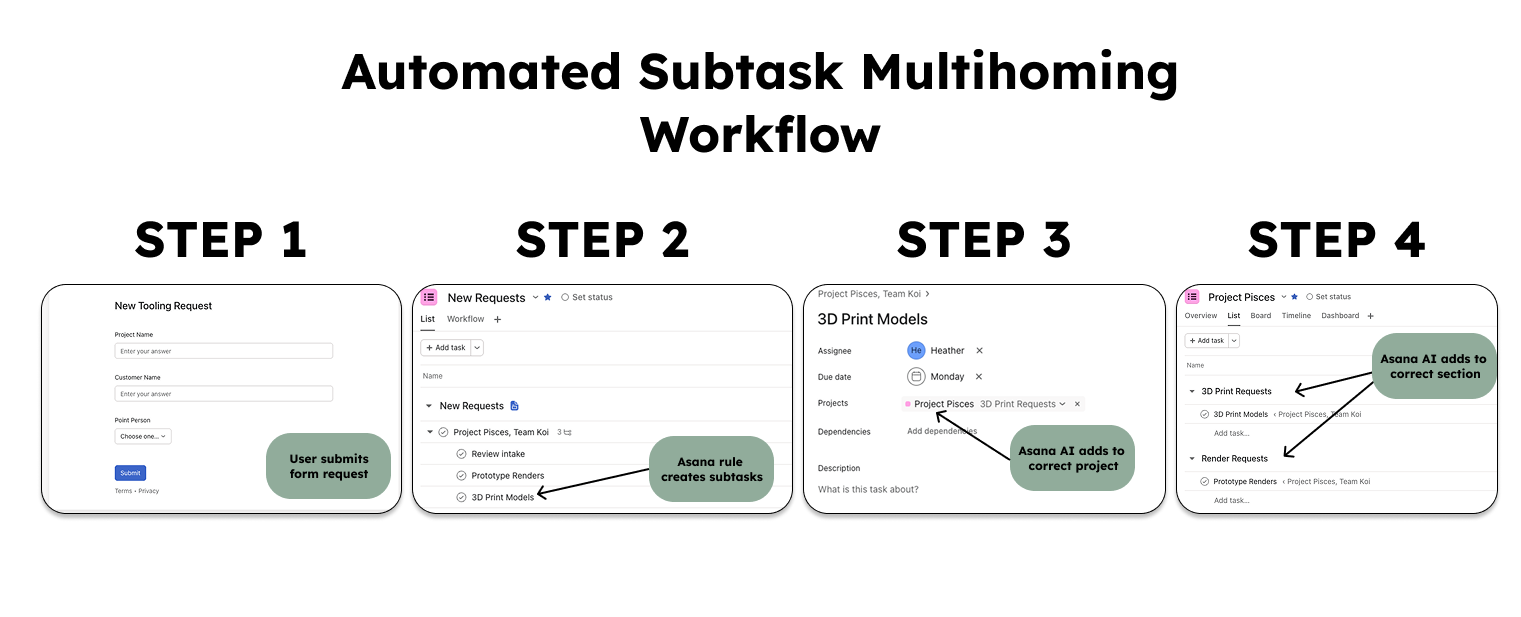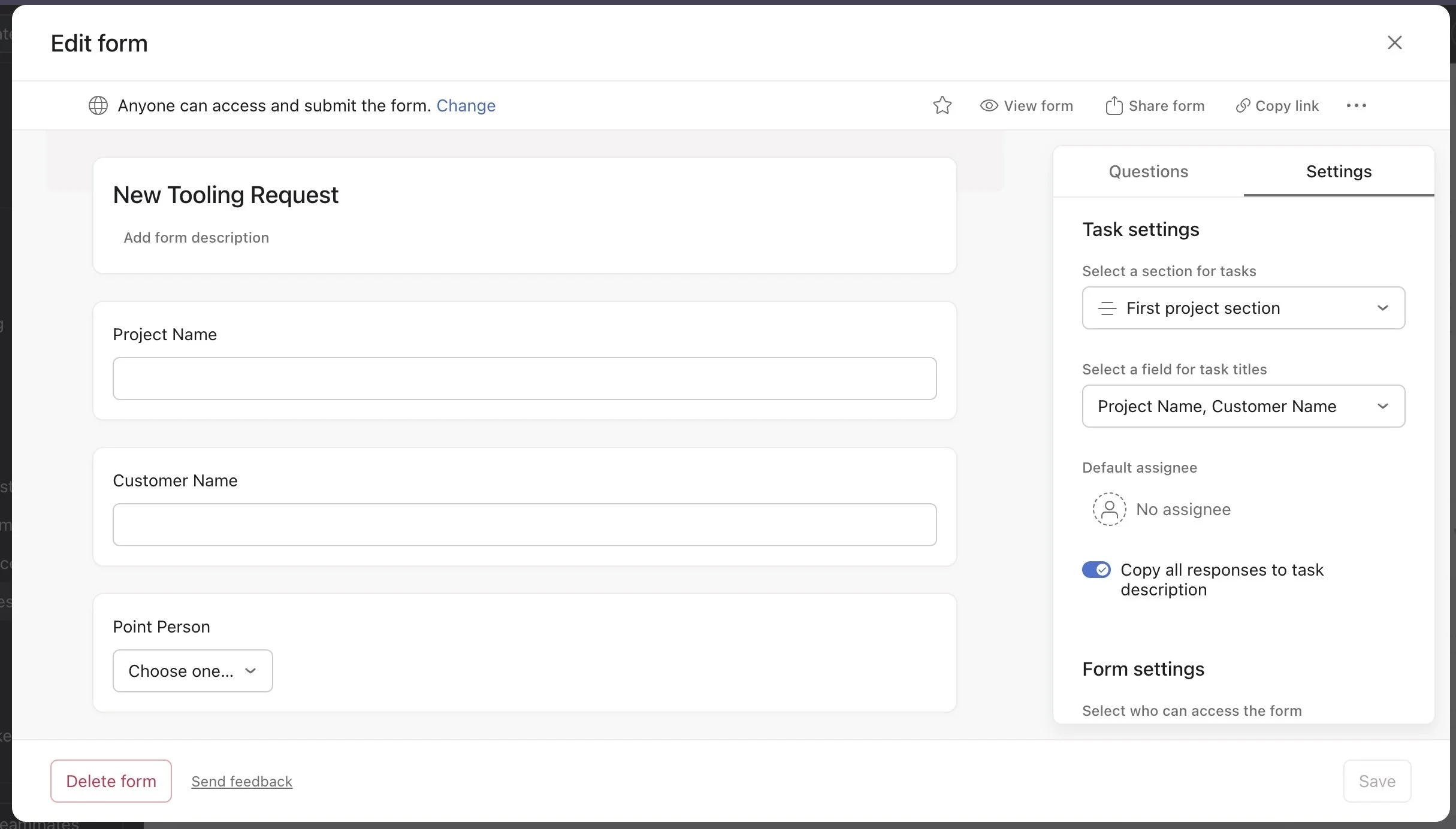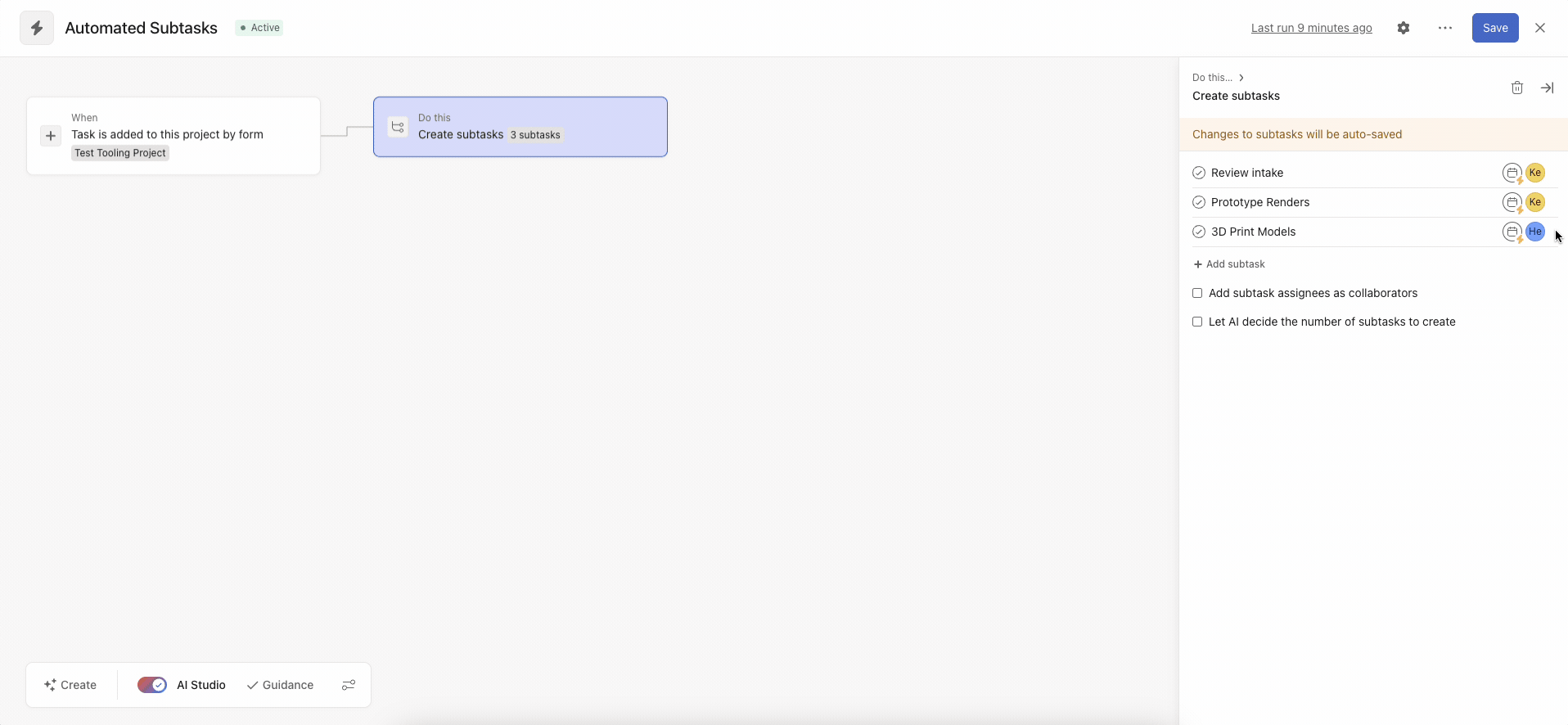Multi-home automated subtasks to existing projects using Asana AI Studio
This week, one of our Asana AI Studio Office Hours participants had a great use case we hadn’t yet tested!
The Workflow
When a new task is added from a form, Freddy was manually creating subtasks and multihoming them to the relevant projects.
Although we could automate the subtask creation process without the support of Asana AI Studio, the complexity came with the multi-homing piece. We needed to find a way for AI Studio to identify the correct project and multi-home the subtasks accordingly.
Our biggest hurdle when building this workflow was finding the juuuuuust right reference that ensured that AI Studio had the necessary level of permissions without manually tagging in every project. Referencing the Team still left us with access errors that had us stumped for a bit.
It turned out the key to unlock this access issue was Portfolios. As soon as we referenced our All Projects portfolio, it ran like a dream!
Step-by-Step Guide
Step 1: Form Set-Up
We achieved our best results by ensuring that the relevant overarching project was referenced within the Task Name & Description. We achieved this by adding a question for “Project Name” and updating the form settings to reference those entries as the task name.
Step 2: Portfolio Set-up
Make sure all projects that will be referenced in this rule are attached to a shared Portfolio.
NOTE: Make sure your templates automatically add to this project to prevent manual work long-term!
Step 3: Build Your Rules
We built two Smart Workflows to fully automate - Ideally we could have done it all within one, but I could not get our AI buddy to tackle the Sections piece.
Rule #1 - Create subtasks and multihome with AI
This rule should be built on the New Request project (the project where your form submits the new tasks)
Set “When” to Task is added to this project
Note: If your routing has additional complexities based on channel or requester, you can further refine this by referencing specific forms.
Set “Do this” to Create Subtasks
Edit the relevant subtasks, click Projects, and select Use AI
Guidance for AI: Below is the exact prompt I used to build this. Be sure to tag your Portfolio to build your references:
"Your Job is Subtask Multi-homing
When a task is added, complete the following steps:Review Task Name & Description for the corresponding Project NameReview projects in @Portfolio Name for a corresponding project matching the project name (example: Project Pisces)Add subtask to this project
Example:New request titled Project Pisces - Koi INC should be added to the project titled Project Pisces in the @Portfolio Name"
Rule #2 - Route Tasks to their proper section with AI
This rule should be built on the destination project - Enterprise users can apply this rule across multiple projects by using Bundles.
Set “When” to Task is added to this project
Note: If your routing has additional complexities based on channel or requester, you can further refine this by referencing specific forms.
Set “Check if” to Check condition with AI
Guidance for AI: Below is the exact prompt I used:
“Your job is to move new requests to the appropriate section
Review the task nameIdentify the correct project sectionMove the task to that sectionExample:
A task referencing a "3D Print" should go to the 3D Print RequestsA task referencing "Renders" should go to the Render Requests”
Step 4: Test!
Last, but not least, always make sure you test your automation and view the AI Summary. Pressure test to make sure it’s following the steps exactly as you would. If your rule is returning an error, continue to iterate on your prompt until you get the correct result!
I have a feeling we’ll be able to update this workflow once AI Teammates are live, but I’m curious anyone has any other tips that would make this even more efficient!







